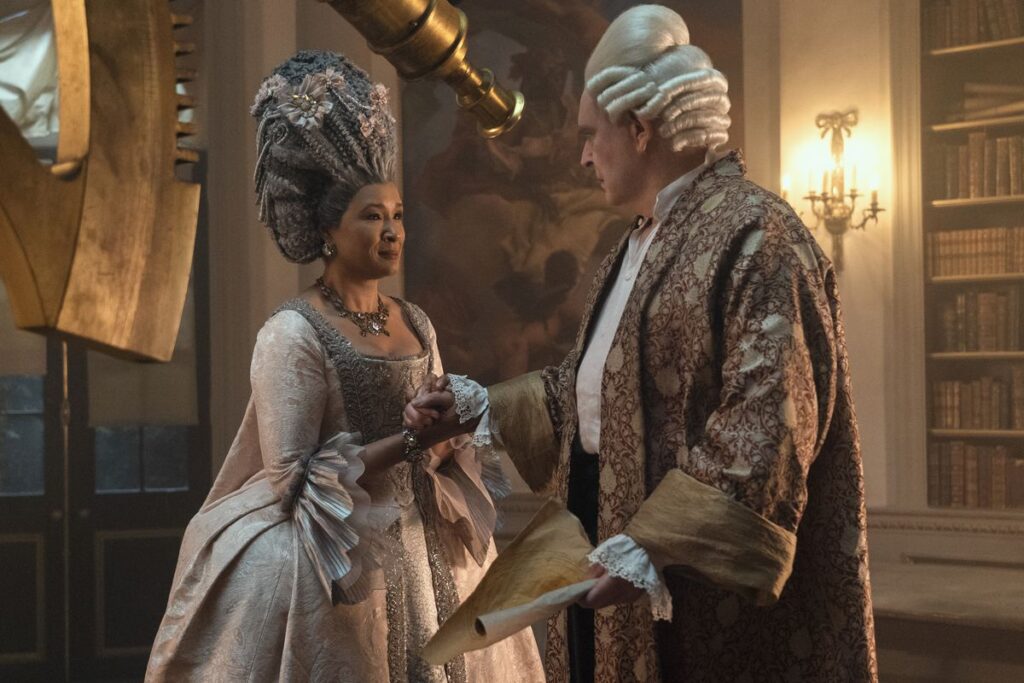I wasn’t expecting a prequel about Queen Charlotte, a real historical figure, and King George III, the guy in Hamilton who sings “You’ll Be Back” (and also a real historical figure) would make me incredibly emotional, but here we are! Shonda Rhimes, you’ve done it again.
Not only is Queen Charlotte good, but it is actually better television than the mainline Bridgerton series. Is that blasphemy? Perhaps, but Queen Charlotte manages its expansive cast and multiple plotlines with more finesse and better pacing than the main series — with the added challenge of two different time periods. It ambitiously tackles so much more, and yet pulls it off with a steady hand.
Queen Charlotte is a prequel and a sort of interlude between Bridgerton seasons. The main storyline takes place in the past, focusing on a young Queen Charlotte (played by India Ria Amarteifio) and her arranged marriage to King George (Corey Mylchreest) — and the ramifications that union had for English society. It’s sprinkled in with bits of the main Bridgerton timeline, where Charlotte attempts to pair her children up with respectable matches after her oldest son’s wife dies in childbirth. Familiar characters like Lady Danbury and Violet Bridgerton make appearances in both the past and present storylines. And ultimately, the two time periods work well together; it’s compelling to see how the decisions the younger versions of the characters made and the hurdles they’ve had to overcome affects their outlook in the present day.
Photo: Liam Daniel/Netflix
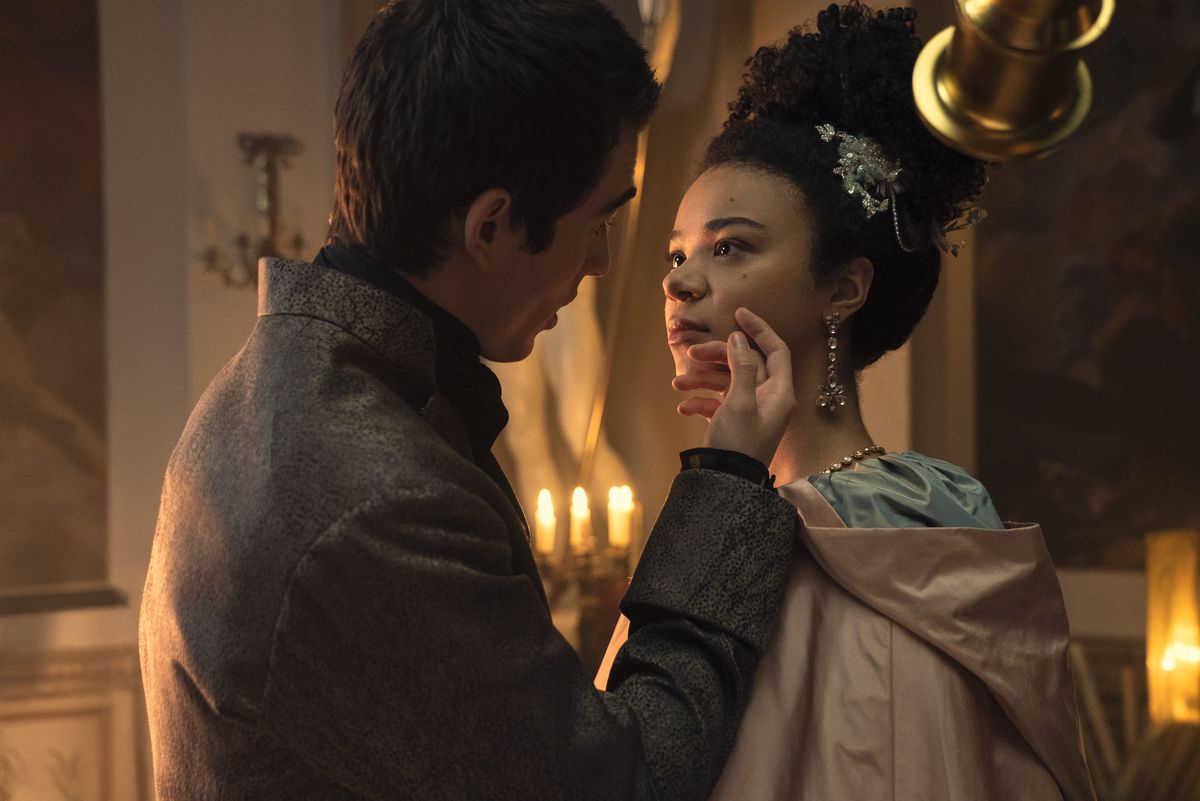
Photo: Liam Daniel/Netflix
In the present-day timeline of Bridgerton, Charlotte mostly rules on her own, while her rarely lucid husband’s mental health declines. That just makes the blossoming romance in Queen Charlotte all the more resonant. The core Bridgerton series tells us that Charlotte and George are deeply in love, despite their current situation; Queen Charlotte shows how that love came to be: A headstrong young woman and a troubled young man defied their own expectations — and the expectations of those around them — and found kindred spirits in one another. Both of them want to challenge societal expectations, and it’s through Charlotte that George finds the strength to do so even if his mental health struggles make him feel like an outsider (let’s not think too hard about the actual historical facts here). They overcome all odds and triumphantly find one another, even if it’s all juxtaposed with the bittersweetness of the present day.
Young Charlotte, George, and Lady Danbury are all magnetic characters, as are Brimsley and Reynolds, the Queen and King’s respective right-hand men. Unlike the latest season of Bridgerton, which suffers from too many side plots that don’t really have anything to do with the main storyline, Queen Charlotte’s B-plots all weave into the greater overarching plot and bolster it nicely. There is so much that Bridgerton itself could not pull off that somehow work excellently in Queen Charlotte: A Bridgerton Story. Fitting for a queen.
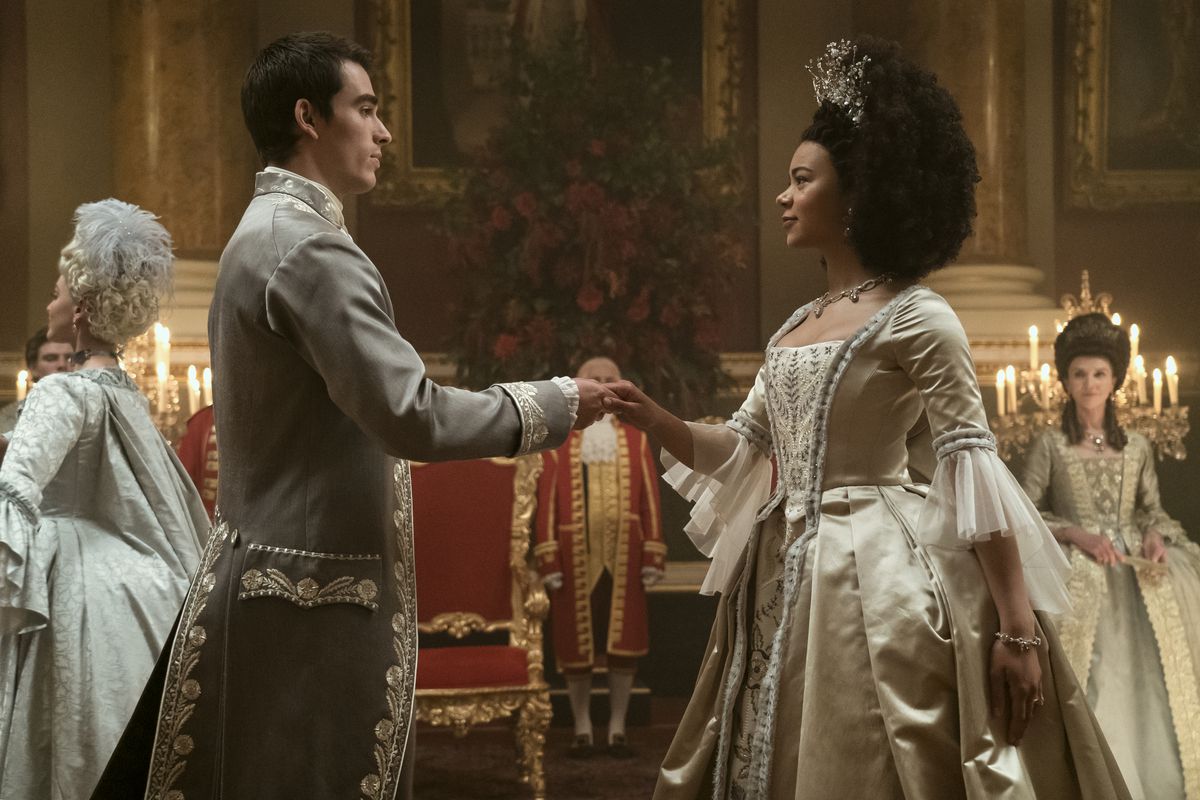
Photo: Liam Daniel/Netflix
If there is one flaw with Queen Charlotte, it is that the story inherited Bridgerton’s weird approach to race and can only do so much with it in its limited six-episode run. Bridgerton exists in a fuzzy space between fantasy and reality, where racism at one point existed but hasn’t for some decades — as such, the main show’s approach to it is usually something like, “Don’t think too hard! Queen Charlotte and King George’s love solved that problem ages ago. Just dance to ‘Wildest Dreams!’”
Queen Charlotte is, however, about that love, which means that it can’t just handwave the problem away. But even still, the show never really commits to any deeper interrogation of race. For one, no one in the show actually ever says it’s about race. They just refer to people of different races as “our side” and “their side.” The show does highlight some of the characters, most notably young Lady Danbury (Arsema Thomas), proving their legitimacy with these new societal norms. But because most of the focus is on Charlotte and George’s blossoming relationship and the arranged-marriage-to-genuine-lovers romantic arc — and not their time as rulers making the big decisions, even if some of those big decisions are happening outside their control — it never really goes full throttle into how they dismantled institutionalized racism. There is the barest hint of it at the end, but not enough to satisfyingly address the big question marks that Bridgerton has tried to hide between a pastel-swathed silk curtain.
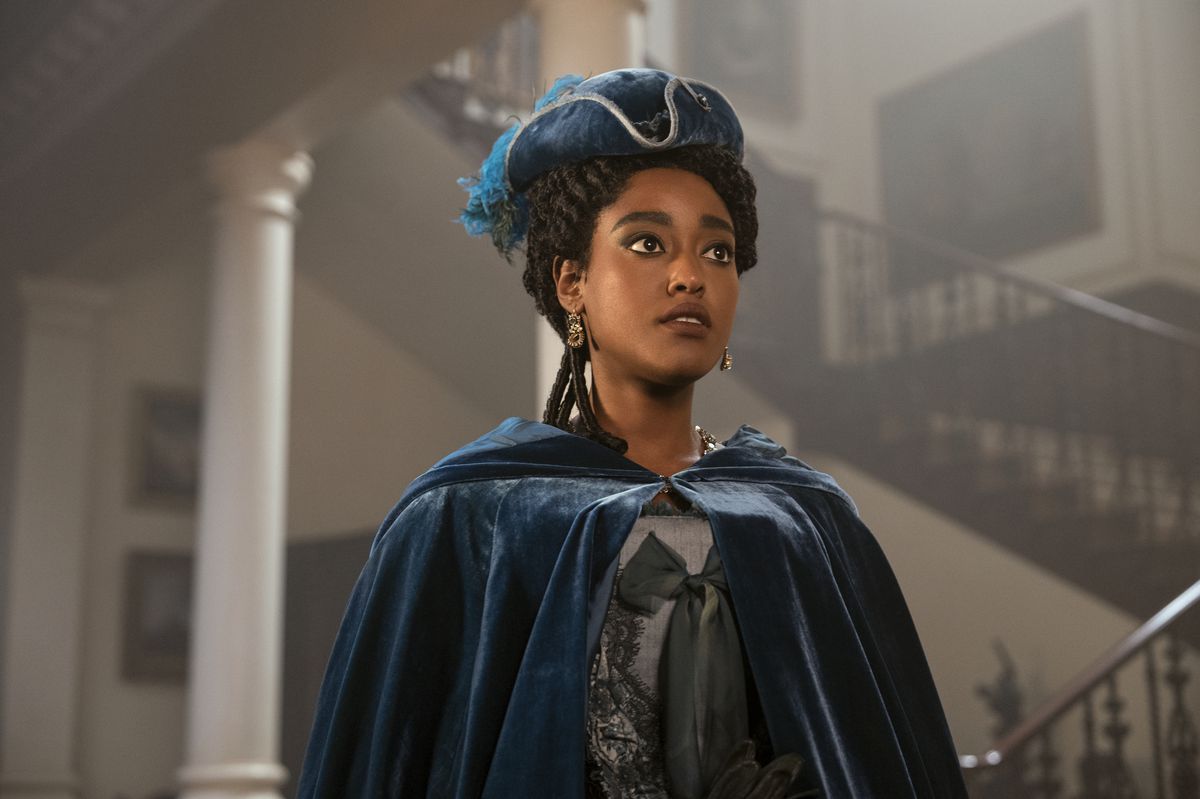
Photo: Nick Wall/Netflix
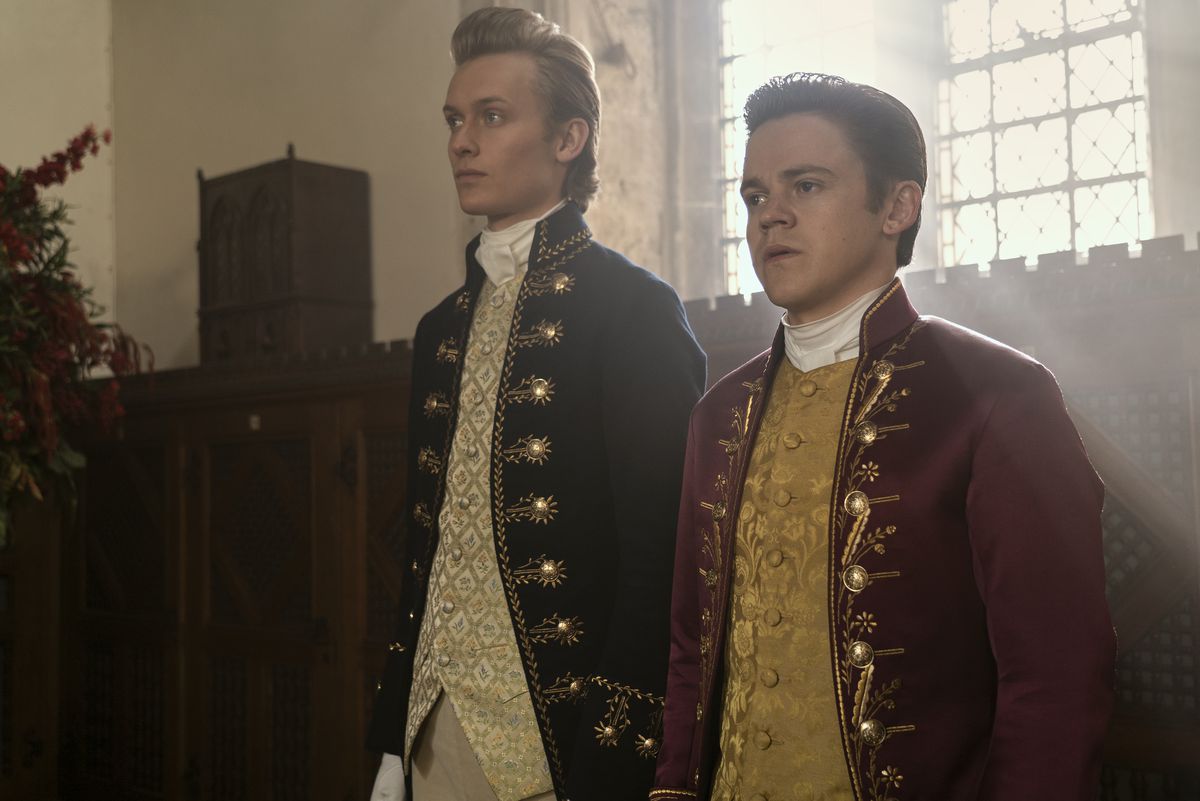
Photo: Liam Daniel/Netflix
But as far as arranged-marriage-to-begrudging-allies-to-genuine-lovers-to-doomed-romance arcs goes, Queen Charlotte soars. There is palpable chemistry between Amarteifio and Mylchreest (whose chaotic yet charming performance feels in line with Nicholas Hoult’s King Peter in Hulu’s The Great — this is a compliment). And unlike Bridgertons-prior, where the arc felt either rushed or too drawn out, Queen Charlotte’s pacing is positively perfect. There is just enough give-and-pull in the central romance to make it compelling. The trickiest part of a good romance is balancing internal and external tension. Too much internal tension and you wonder why the couple even likes each other, but too much external tension and their story risks falling to the wayside. But Queen Charlotte balances it all deftly.
Unlike the main Bridgerton series, Queen Charlotte doesn’t end with a sweeping happily ever after. Charlotte and George’s story was marked with tragedy from the beginning; fans of the original show (or the history of the real couple, I guess) know this all too well. There is an echo of grief throughout the entire series, one that makes the happy moments more poignant and really emphasizes the tragic ones. It ends not on a traditionally happy note, but not on a totally sorrowful one, either. Even with George’s declining mental health, there are snippets of the man he used to be — the relationship they used to have — buried within him. We see that now, built up by these six episodes that showcase just how these two fiery and complicated people challenged one another and fell in love. The final scene of Queen Charlotte is a well-earned punch to the gut, one that aches so good with the same tenderness of The Notebook, Titanic, and other tragic love stories, and emphasizes that love is worth the heartache, always.
Queen Charlotte: A Bridgerton Story is on Netflix now.

